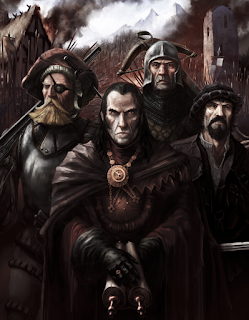The Mountainside Delves
The better part of a year has passed since I produced anything for this blog. For most of that time, I have been working on a dungeon of my own design. I moved steadily from a hand-drawn sketch, to a fully realized map, to a fully keyed dungeon. My efforts languished mere steps from something publishable, and between work-life balance, illness, and full-time DM duties, I found plenty of excuses to procrastinate the finishing touches. I am proud to say that I have finally brought the project to completion, or at least this version of it. I expect with playtesting and feedback, this dungeon will have several iterations as improvements are made to polish the rough spots. In the meantime, please enjoy the Mountainside Delves. It's free, it's old-school, and it's system-neutral. Dungeon Map Dungeon Key





